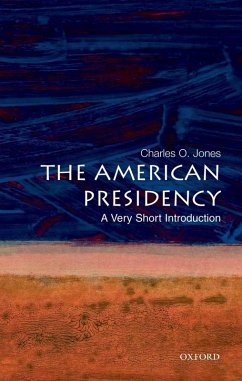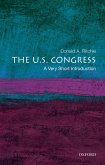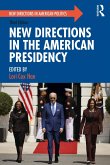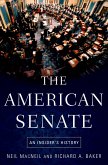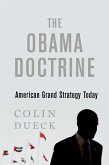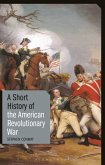The expansion of executive powers amid the war on terrorism has brought the presidency to the center of heated public debate. Now, in
The American Presidency, presidential authority Charles O. Jones provides invaluable background to the current controversy, in a compact, reliable guide to the office of the chief executive. This marvelously concise survey is packed with information about the presidency, some of it quite surprising. We learn, for example, that the Founders adopted the word "president" over "governor" and other alternatives because it suggested a light hand, as in one who presides, rather than rules. Indeed, the Constitutional Convention first agreed to a weak chief executive elected by congress for one seven-year term, later calling for independent election and separation of powers. Jones sheds much light on how assertive leaders, such as Andrew Jackson, Theodore Roosevelt, and FDR enhanced the power of the presidency, and illuminating how such factors as philosophy (Reagan's anti-Communist conservatism), the legacy of previous presidencies (Jimmy Carter following Watergate), relations with Congress, and the impact of outside events have all influenced presidential authority. He also explores the rise of federal power and the dramatic expansion of federal agencies, showing how the president takes a direct hand in this vast bureaucracy, and he examines the political process of selecting presidents, from the days of deadlocked conventions to the rise of the primary after World War II. "In 200 years," he writes, "the presidency had changed from that of a person--Washington followed by Adams, then Jefferson--to a presidential enterprise with a cast of thousands." Jones explains how this remarkable expansion has occurred and where it may lead in the future.
About the Series: Combining authority with wit, accessibility, and style,
Very Short Introductions offer an introduction to some of life's most interesting topics. Written by experts for the newcomer, they demonstrate the finest contemporary thinking about the central problems and issues in hundreds of key topics, from philosophy to Freud, quantum theory to Islam.
Dieser Download kann aus rechtlichen Gründen nur mit Rechnungsadresse in A, B, BG, CY, CZ, D, DK, EW, E, FIN, F, GR, HR, H, IRL, I, LT, L, LR, M, NL, PL, P, R, S, SLO, SK ausgeliefert werden.

